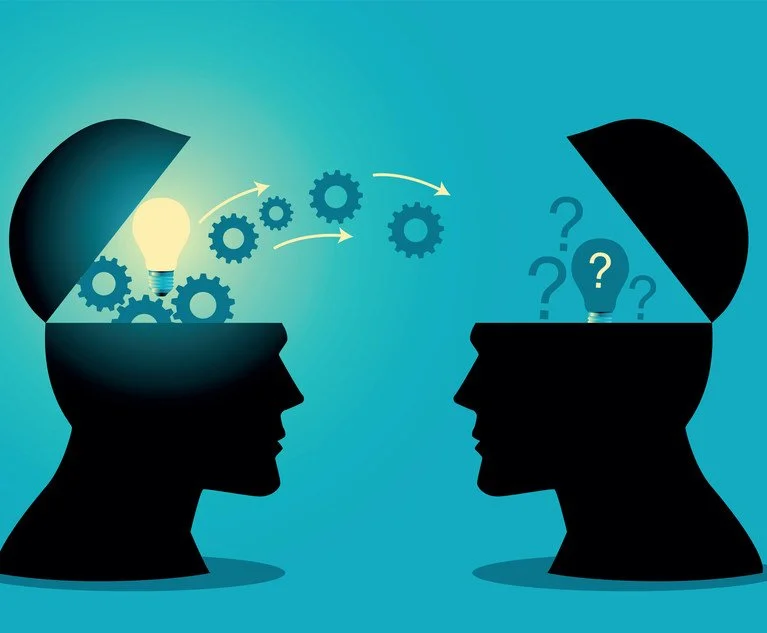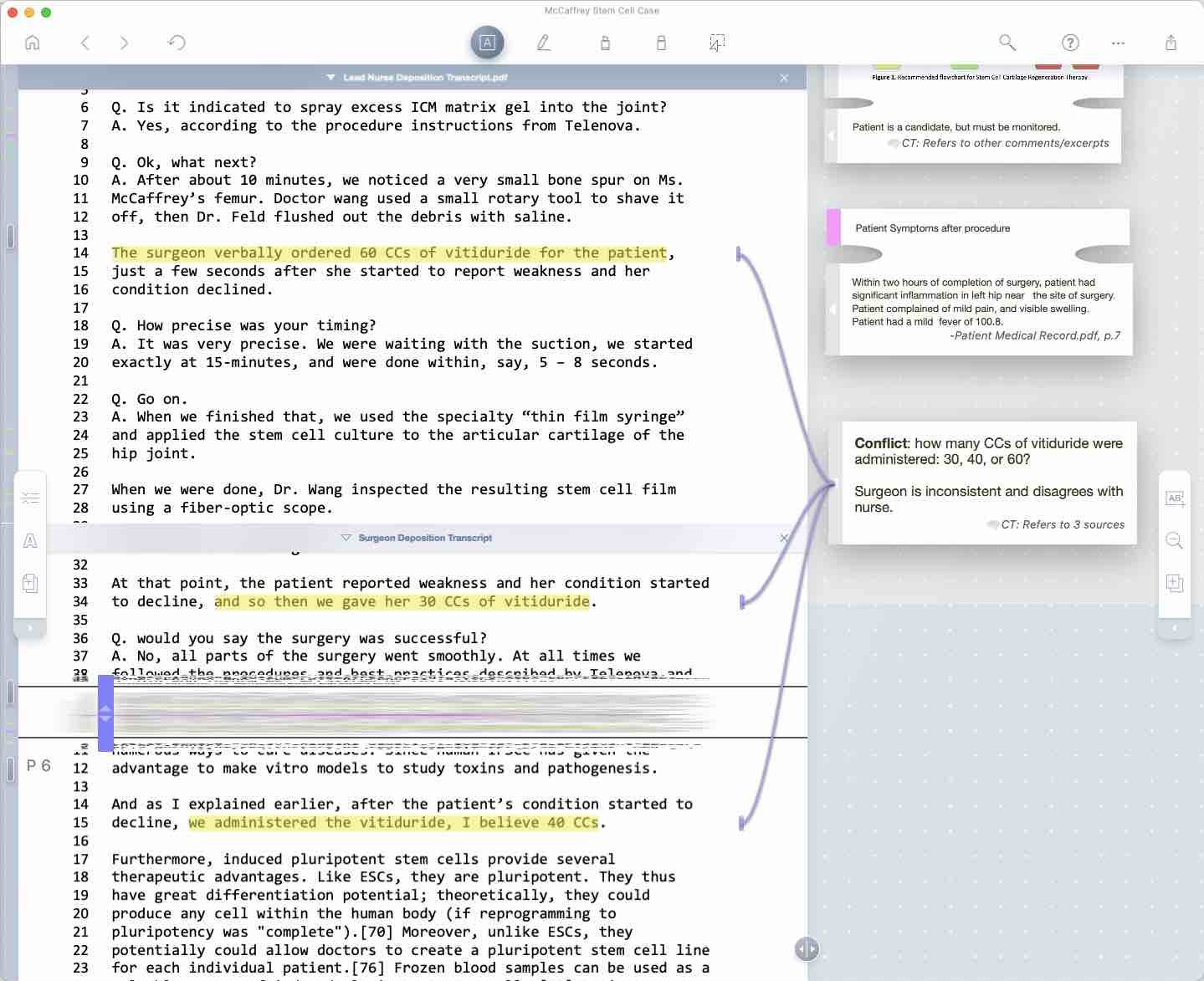Used Everywhere
Over 6 million downloads,
First Winner of Editor’s Choice from both Apple and Microsoft
LiquidText is your
“Second Brain”
A note-taking application with the ability to link or connect content and ideas, notes and source documents, it helps knowledge intensive users make present use of previously acquired knowledge, return to a project much later, share knowledge with a colleague or partner, and quickly retrieve information.
With a second brain, you can research materials, store the content away, and apply it to new projects. As you do that, you not only get things done faster, but your value rises sharply because your current work adds value to future work. When a note-taking tool connects source material and notes, you can discover novel new ideas. For example, you can bring up two or more documents, compare the them and discover new insights.
If you’ve returned to a project, after a break, you know the challenges. It takes time to change context, and resurrecting your previous chain of thought is fraught with difficulty from the inaccurate or incomplete recall. But with a tool that links source documents, notes, and ideas, your second brain would have the facts straight and each piece of supporting data available. You can retrace your steps and better share your work with your colleagues.
LiquidText gives you
Improved productivity
The ability to go paperless
The ability to discover new insights in your data
An advantage in the office
The ability to visualize relationships between document sources and your analysis
Improved clarity of notes and observations
Improved collaboration with clients and colleagues
Faster meeting prep and project switching
This demo depicts a research and discovery process towards finding a cause for Bee Afficting Disease.
Paperless Student on Studying with LiquidText
New tools for Complex Document Analysis, as presented to the US Forensics Expert Witness Association Annual Conference
Active reading comprises many daily tasks lawyers engage in, including highlighting, annotating, note taking, comparing and searching texts. It demands more than flipping or turning pages.
As published in ALM LAW.COM Law Journal Newsletters, July 2023
Improve Productivity by Turning Your Computer Into a Second Brain with LiquidText
Modern note-taking applications can give you a second brain— a digital extension of your human brain that can store, retrieve, and organize notes and source documents, allowing you to analyze, compare and distinguish document text to quickly draw necessary conclusions.
This article first appeared in the February 22, 2023, issue of Legaltech News.
Go Paperless with LiquidText
Julie Wright, Barrister
Read about how LiquidText helped a Construction Litigator go Paperless and Win a Strategic Advantage in the Courtroom
“Before, my life was trolleys full of documents at trial.
Now, I turn up to the courts with my Mac and iPad.”
“I can get to documents probably faster than the people using paper”
Advocacy with LiquidText
Roger Harper, Lawyer (Barrister)
Roger is a lawyer (barrister) who focuses on family and financial cases. He uses LiquidText to take a collection of evidence documents, summarize them, digest them, and prepare a mind map to take to the trial. But during a trial, Roger needs to get to documents as fast as possible, and here LiquidText shined: “I can get to documents probably faster than the people using paper.”
Roger navigates so quickly using LiquidText’s InkLinks; when he first reads the documents, he draws InkLink lines of different colors to create connections within and between documents.
The impact for him is, “being able to find a particular page and cross reference it to the other relevant docs faster than people using paper is a competitive advantage.”.
Faster meeting prep with LiquidText
S.B., Attorney
SB is an in-house attorney specializing in bankruptcy, and general corporate law. He uses LiquidText to review and take notes on documents in preparation for meetings.
But SB works with long documents where a small handful of critical points are hidden in a mountain of irrelevant content. SB needs to separate and organize the important information out so he can find it quickly at meetings.
For this, he uses two strategies. First, using LiquidText’s excerpts, he gathers the most essential parts of his documents together, organizes them, and combines them with his own comments in the LiquidText workspace. Second, he uses HighlightView to see the most important parts of his documents together, with context.
He concludes that LiquidText “helps me to concentrate on the essential, relevant parts of documents… So I'm faster with that, and at the same time, I think I can work more thoroughly because I don't miss parts.”
“LiquidText helps me to concentrate on the essential, relevant parts of documents.”
LiquidText is the document analysis platform of choice for patent professionals worldwide
Part one of this three-part series on LiquidText, interviews Craig Tashman, founder of LiquidText, to find out what it is and how it benefits patent attorneys and other IP professionals.
“A 15-second demo video on Google showed how LiquidText users pinch the UI to bring together highlighted texts; it resulted in five million downloads.”










